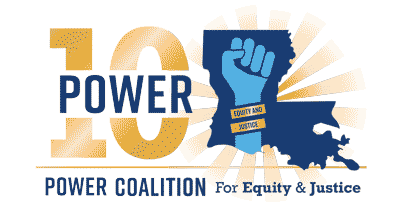Special Primary: Senate District 3
& Representative Districts 37, 60, 97, 100
Know Your Rights
What are my general rights on Election Day?
If the polls close while you’re still in line, stay in line – you have the right to vote.
If you make a mistake on your ballot, ask for a new one.
If the machines are down at your polling place, ask for a paper ballot.
If you run into any problems or have questions on Election Day, call the Election Protection Hotline:
- English: 1-866-OUR-VOTE / 1-866-687-8683
- Spanish: 1-888-VE-Y-VOTA / 1-888-839-8682
- Arabic: 1-844-YALLA-US / 1-844-925-5287
- For Bengali, Cantonese, Hindi, Urdu, Korean, Mandarin, Tagalog, or Vietnamese: 1-888-274-8683
Your Rights
- Voters are entitled to a provisional ballot, even if they aren’t in the poll book.
- After Election Day, election officials must investigate whether you are qualified to vote and registered. If you are qualified and registered, they will count your provisional ballot.
- Ask the poll worker to double check for your name on the list of registered voters. Make sure to spell your name out for the poll worker.
- If your name is not on the list,ask if there is a supplemental list of voters.
- If the poll worker still cannot find your name, confirm that you are at the correct polling place:
- Request that the poll workers check a statewide system (if one is available) to see if you are registered to vote at a different polling place.
- If the poll worker does not have access to a statewide system, ask them to call the main election office.
- You can also call 1-866-OUR-VOTE and ask for help verifying your proper polling place.
- If you are registered at a different location, in most instances you will have to travel to that location to cast a regular ballot.
- If the poll worker still cannot find your name or if you cannot travel to the correct polling place, ask for a provisional ballot.
- If you are turned away or denied a provisional ballot,call the Election Protection Hotline at 1-866-OUR-VOTE or 1-888-VE-Y-VOTA (en Español).
- Report your experience to local election officials.
Your Rights
- All polling places for federal elections must be fully accessible to voters with disabilities. Only allowing curbside voting is not enough to meet ADA guidlelines
- Every polling place must have at least one voting system that allows voters with disabilities to vote privately and independently.
- Voters with disabilities and voters who have difficulty with English have the right to receive in-person help at the polls from the person of their choice. It cannot be from an employer.
- Election officials must make reasonable accommodations as needed to help you vote. Election officials must provide you with help if it’s possible for them to do so.
- A voter with a mental disability cannot be turned away from the polls because a poll worker thinks they are not ‘qualified’ to vote.
- If you face any challenges in voting or are unable to cast your vote, report the problem to the Election Protection hotline at 1-866-OUR-VOTE.
- You can bring a family member, friend, or another person of your choice to assist you at the polls. Do not bring your employer, or an agent of your employer or union.
- If you bring a person to assist you, tell the poll workers when you check in. They may ask you to swear under oath that you have a disability and that you have asked that person to help you.
- If there are long lines and you have a physical or mental health condition or disability that makes it difficult for you to stand in line, tell a poll worker.
- Tell election officials what you need. For example, if it’s hard for you to stand, they should provide you with a chair or a place to sit while you wait. If the crowds or noise are hard for you, election officials can find a quiet place for you to wait and call you when it’s your turn to vote.
- If you are not able to enter your polling place because the pathway to it is not fully accessible, ask a poll worker for curbside assistance.
- If you have difficulty using the materials provided to make your ballot selections, review, or cast your ballot, let a poll worker know and ask for the help you need.
Examples of Voter Intimidation
-
- Aggressively questioning voters about their citizenship, criminal record, or other qualifications to vote.
- Falsely representing oneself as an elections official.
- Displaying false or misleading signs about voter fraud and related criminal penalties.
- Other forms of harassment, particularly harassment targeting non-English speakers and voters of color.
- Spreading false information about voter requirements.
- You do not need to speak English to vote
- You do not need to pass a test to vote
- For Louisiana You Need to bring a Form of I.D. with you to the polls, HOWEVER, if you do not have one you can sign a voter affidavit and still vote
Your Rights
It’s illegal to intimidate voters and a federal crime to “intimidate, threaten, [or] coerce … any other person for the purpose of interfering with the right of [that] other person to vote or to vote as he may choose.”
What to Do
-
- In many states, you can give a sworn statement to the poll worker that you meet the qualifications to vote in your state, and then proceed to cast a ballot.
- Report intimidation to the Election Protection Hotline at 1-866-OUR-VOTE or 1-888-VE-Y-VOTA (en Español).
- Report intimidation to your local election officials. Their offices will be open on Election Day.
Your Rights
- Under federal law, voters who have difficulty reading or writing English may receive in-person assistance at the polls from the person of their choice. This person cannot be the voter’s employer, an agent of the voter’s employer, or an agent or officer of the voter’s union.
- Counties covered by Section 203 of the Voting Rights Act are required to provide bilingual assistance to voters in specific languages. This means that they must provide poll workers who speak certain languages, and make all election materials and election-related information available in those languages. Check whether your county is required to provide bilingual election assistance in a language you speak.
- You can bring a family member, friend, or other person of your choice to assist you at the polls. Do not bring your employer, or an agent of your employer or union.
- If you live in a county that’s required to provide bilingual voting assistance for a language you speak, you can request oral assistance from a bilingual poll worker and ask for voting materials, such as a ballot, in that language.
- If you have trouble voting due to lack of English fluency, call one of these hotlines:
- English: 1-866-OUR-VOTE / 1-866-687-8683
- Spanish: 1-888-VE-Y-VOTA / 1-888-839-8682
- Arabic: 1-844-YALLA-US / 1-844-925-5287
- For Bengali, Cantonese, Hindi, Urdu, Korean, Mandarin, Tagalog, or Vietnamese:1-888-274-8683



